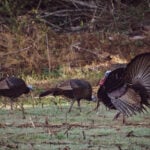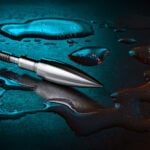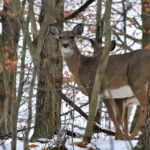A hunter and his (or her) dog. Throughout history, few topics have been more romanticized than this, and for good reason. The bond that exists between hunter and dog is magical, made even more so by the pursuit of wild game. Recent trends, though, have added a new twist as many have realized that “man’s best friend” can assist them in the deer woods, too.
Shed hunting has long been a popular spring pastime, but finding shed antlers isn’t exactly easy. Dropped antlers can get buried in leaves and debris and be hard to spot in thick cover. A good dog can help with that. In fact, a properly trained pup can help you pile up more shed antlers than ever before.
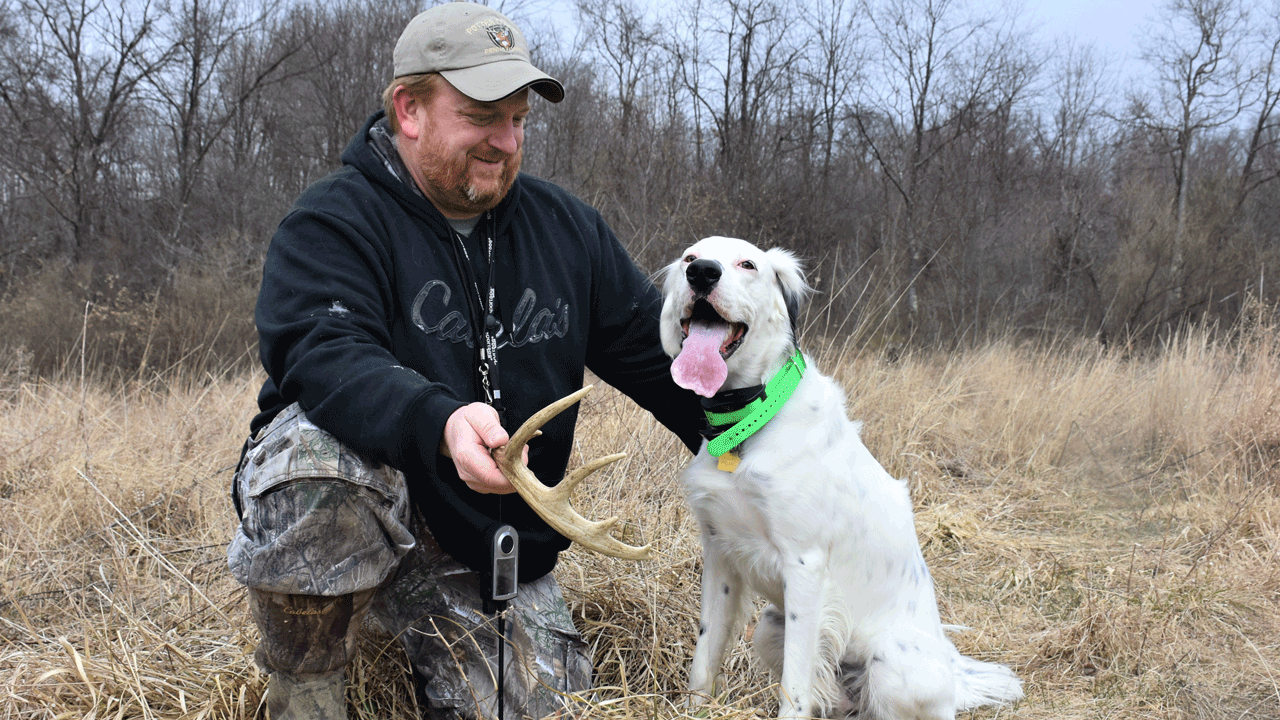
The author with his English Setter.
There’s much debate over which breeds are best for each type of hunting. Dog owners will argue as passionately about various breeds as they will politics and religion, and there’s no quicker way to start a fight than to insult a man’s dog or insist that yours is smarter. Truth is, when it comes to shed hunting, just about any breed can be molded in an antler-finding expert.
The main component a dog must possess is trainability, and a lot of this boils down to genetics. If you’re really serious about buying a shed dog, consult a breeder with a reputation for producing quality pups. These pups don’t necessarily have to be field trial champions, but their pedigree can certainly tell you a lot about their ability to learn, which makes the training process much easier.
A good breeder can help pair you with a dog with the proper genetic makeup that fits your standards, too. Regardless of whether you’re looking to a buy a Labrador Retriever, Beagle, or any other breed, you should look for a specific set of traits such as game-finding ability, temperament, and a willingness to please. All of these are reasons why traditional hunting dogs also make good shed dogs, because they already possess all of the traits that translate well into finding antlers.
And don’t worry. Training your prized bird dog to hunt sheds won’t ruin their ability or desire to find birds. Rather, serving double duty allows them and you to spend more time in the outdoors, effectively shortening the “off season.”
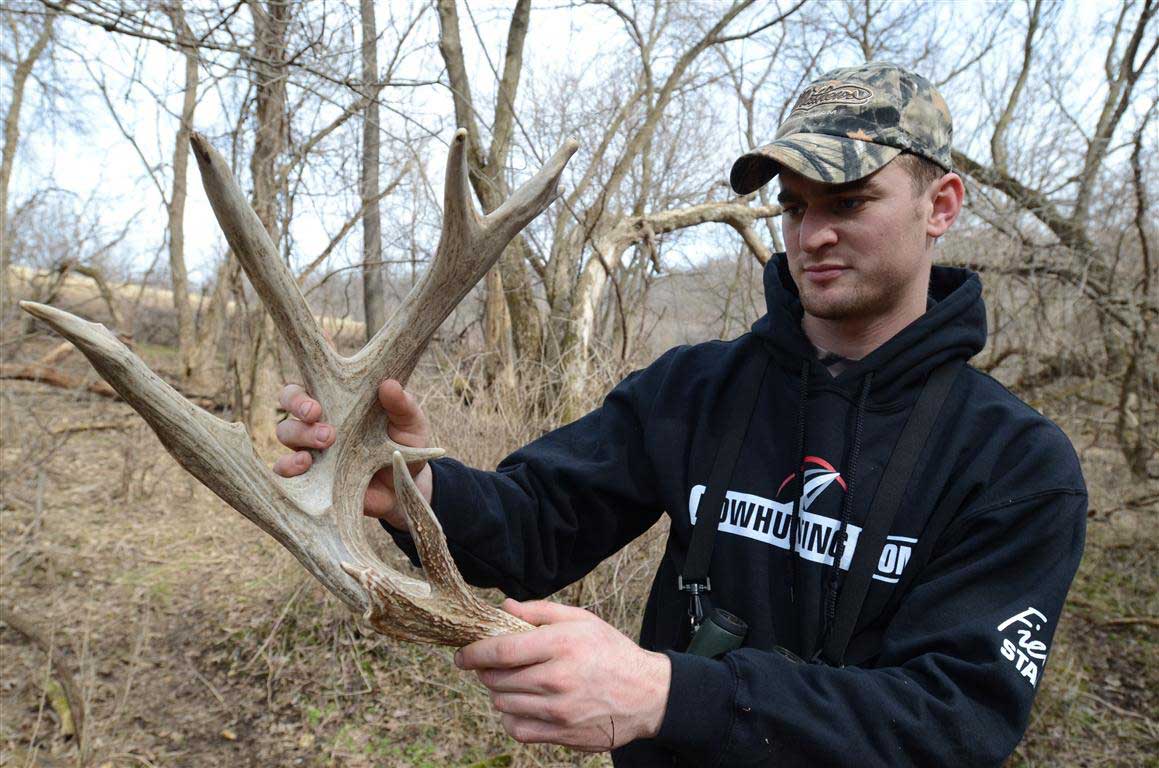
Picking up sheds on your own is fun, but adding a dog to the mix makes the game a whole lot more enjoyable.
Here are a few hunting dogs that are commonly used as shed dogs, as well as some positives and negatives associated with each breed.
Labrador Retriever
It would be hard to discredit the Labrador Retriever as the top hunting breed of all time. They’re extremely versatile dogs that can be trained to retrieve waterfowl and flush pheasants while also serving as the family pet. They have the ability to excel at almost any task. Like most canines, Labradors have a sense of smell roughly one million times greater than ours, but compared to other breeds, a Lab’s nose is often considered one of the ten best. Besides, their name says it all – retriever. Have you ever met a Lab that didn’t want to retrieve a ball no matter how many times you threw it?
Of course, the Labrador Retriever’s rambunctiousness is also one of its downfalls. They’re large, energetic, bouncy dogs with seemingly boundless energy. If you live a sedentary or overly busy lifestyle, it can be hard to find time to give a Lab the exercise and attention it requires. A bored Lab may resort to destructive behavior such as chewing, which can cause more frustration than happiness if you’re not willing or able to fulfill their needs.
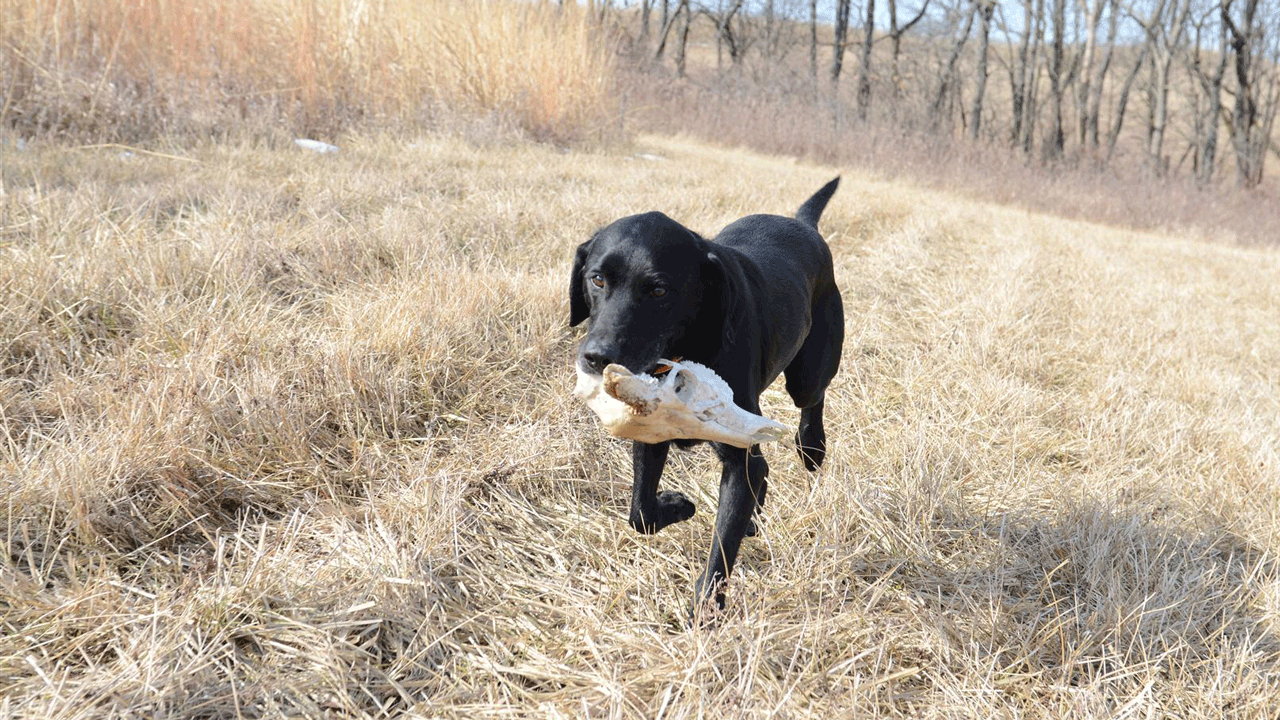
The Labrador Retriever just might be the #1 dog of all time. And they’re great for grabbing sheds as well.
Beagle
If Labrador Retrievers are number one, there should be little doubt that Beagles are number two. These iconic bunny-chasers are natural tracking dogs, which translates well to shed hunting. Beagles are also tenacious and persistent in the field, often combing the area with nose low to the ground. At home, they’re a loving part of the family and their small size makes them fairly easy to take care of. Compared to many other breeds, Beagles are fairly independent and low maintenance dogs.
One positive that could also be considered a negative is the Beagle’s stubbornness. Their stubborn demeanor can make them difficult to house train and field train because they have a tendency to want to do things their way. They require constant work, but once they catch on, they won’t forget it. Another negative is that they’re very vocal. Simply put, they’re genetically hard-wired to bark while following a fresh track, but they also bark on the home front, too, which might not be appreciated by close neighbors.
English Setter
Arguably some of the best bird dogs of all time, English Setters also make great shed dogs. They possess one of the best noses in the business and an ability to find game that is second to none. At home, they’re mild-mannered, excellent family dogs and especially gentle with small kids. English Setters are considered highly intelligent, but more importantly, they’re known as being very easy to train. (As a proud owner of a male English Setter, I can attest to this.) In short, English Setters are very good at adapting to and learning new things and can be trained to perform tasks that just about any other breed can do. They’re very sensitive animals, too, and don’t respond well to heavy-handed training methods. A little discipline goes a long way with an English Setter.
A strong negative is that English Setters are very people-oriented. When left in the house alone all day, or in a kennel by themselves, they can freak out. If you’re single and work long hours, an English Setter should not be your first choice. If you’re looking for a guard dog, you’d be better off looking elsewhere, too.
English Springer Spaniel
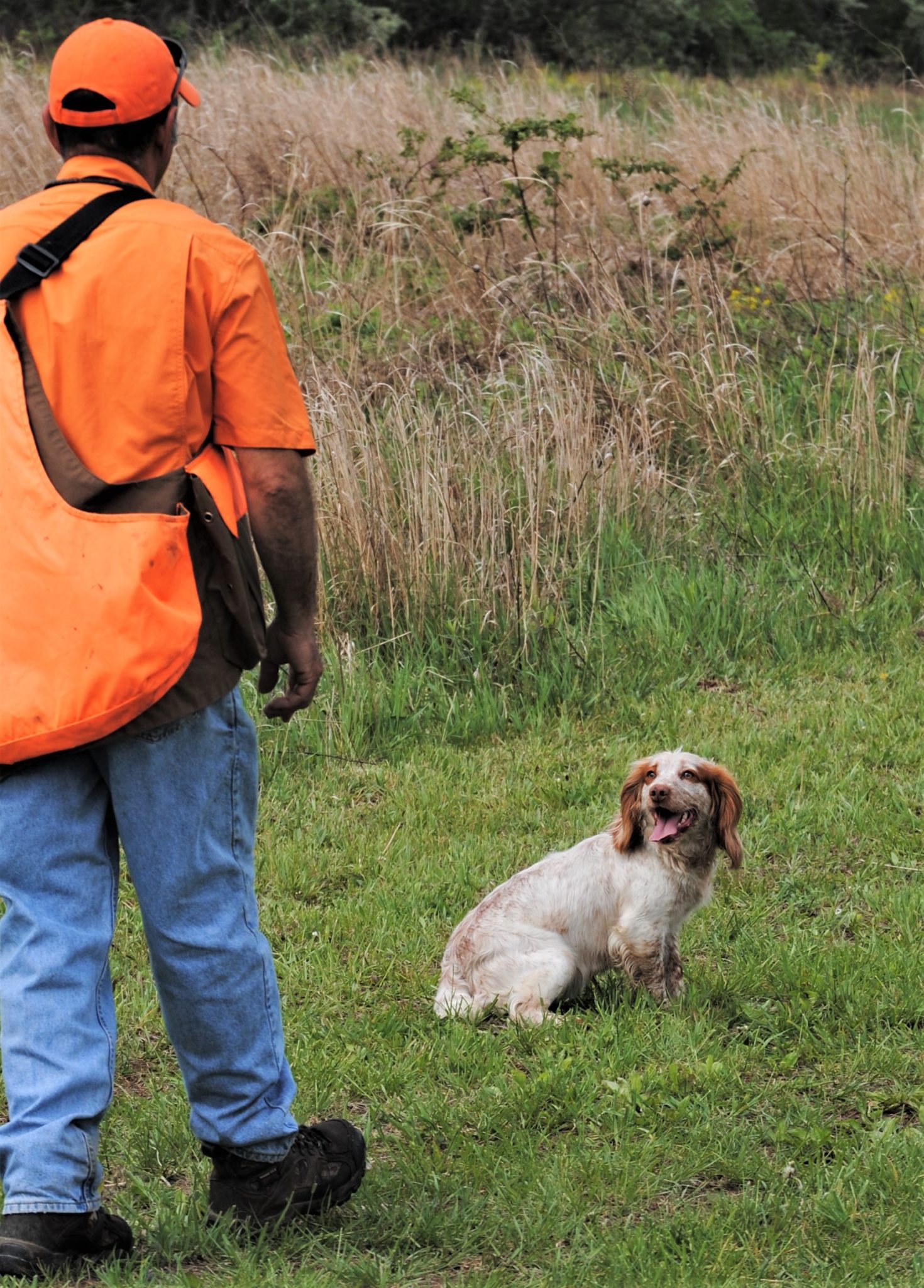
The Springer Spaniel can make a great shed dog too.
Springer Spaniels are extremely versatile, highly trainable gun dogs that also make excellent shed dogs. Springers often rank among the top breeds for both obedience and agility skills trials. They have a temperament that adapts well to indoor life as long as they get at least some daily exercise, and they’re very good with children. Springer Spaniels have a certain aesthetic beauty, too, with lots of feathering on their legs and tail and long fluffy ears. As hunters, they’re efficient on birds and their sense of smell consistently places them in the top ten for dog breeds.
Most of a Springer Spaniel’s negatives involve maintenance of its coat, otherwise it sheds tremendously. Like English Setters, they’re prone to separation anxiety and don’t do well spending too much time alone. They require lots of exercise.
Non-Hunting Options
Two of the best breeds for shed hunting aren’t necessarily known as hunting dogs – the German Shepherd and the Bloodhound. Both breeds make wonderful pets, and German Shepherds can double as guard dogs. Above all, these two breeds possess the best noses you’ll find anywhere, often used by police to sniff out narcotics, track down criminals, and even detect cancer in humans.
German Shepherds and Bloodhounds are quintessential trackers, which means they don’t necessarily make great hunting dogs. And that, perhaps, is their biggest negative. However, if you’re looking strictly for a shed hunting pal or family friend, look no further than these two breeds.
Conclusion
If you’re ready to take your shed hunting to the next level, consider buying a dog or even training a dog you already own. This list of common breeds used in shed hunting is by no means comprehensive. This is meant to show you the possibilities of various breeds and get you thinking about what type of dog would best fit your lifestyle.
Every breed has its positives and negatives. The most important part of choosing a shed dog is finding one that is highly trainable. As long as they have the ability and desire to learn, any breed can be turned into a shed dog.
You can also check out Dog Bone Hunter for more info on how to train your own deer dog as well as tools to make the job easier. Dog Bone Hunter owner, Jeremy Moore, has developed a system for helping you develop your dog to find antlers, as well as track wounded deer.

 By
By 